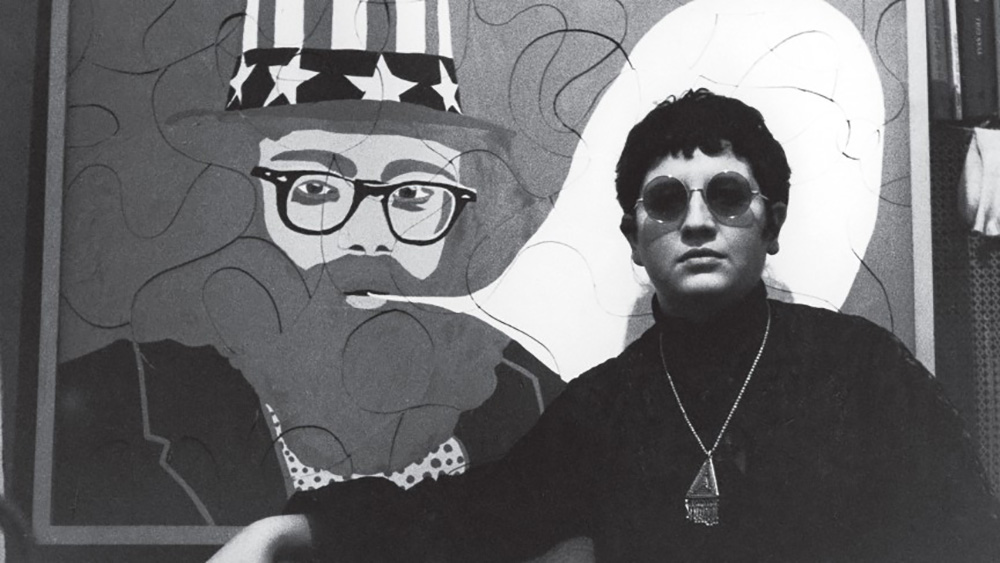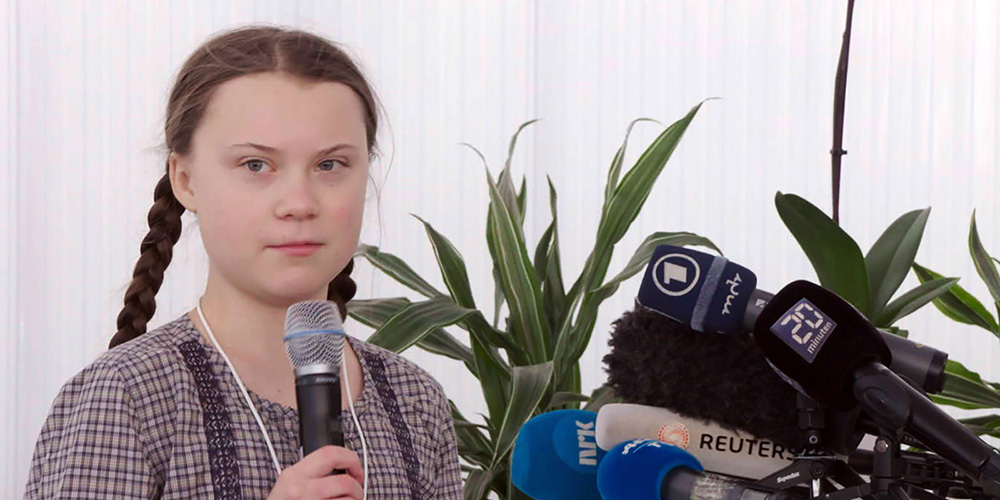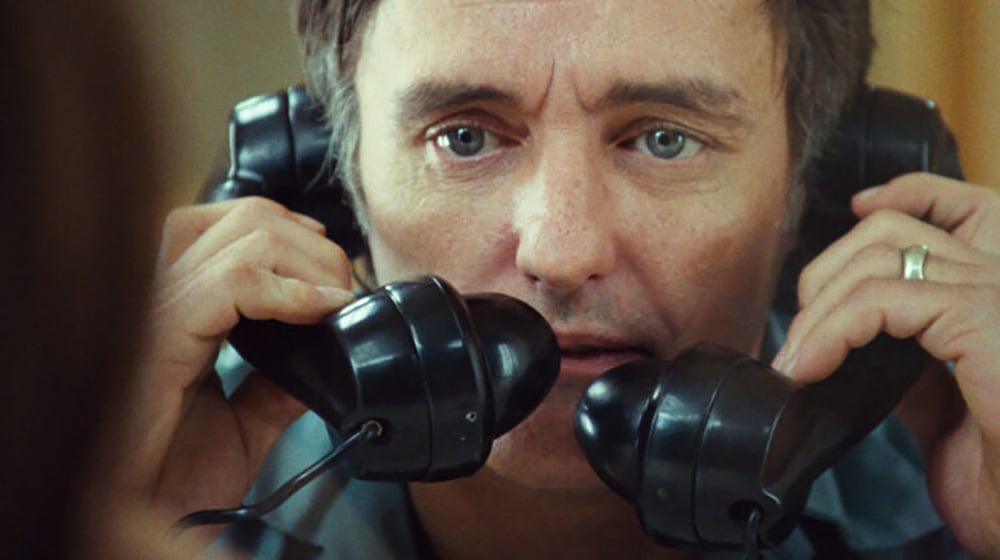The usually giant Vancouver International Film Festival has dialed back its offerings to 100 films this year, along with industry events, virtual reality experiences, panel discussions, musical performances and the opening of the newly-renovated Vancity Theatre.
The festival is giving audiences the option to watch its offerings online, in the theatres, or both. Its streaming platform VIFF Connect allows anyone in B.C. to access programming from their living room, bathroom or boudoir. Just don’t drop your laptop in the tub!
If the idea of sitting in a movie theatre makes you uneasy, even with fellow patrons wearing masks at socially safe distances, you’re not alone. It kind of takes the fun out of the cinematic experience.
Why not take advantage of this year’s online option and hold a mini-festival in your living room? You just need a few other opinionated cinephiles, some salty popcorn and a bathroom lineup.
If I had to a pick a defining quality about many of this year’s films, it would be looking back. No one has the faintest clue what the heck is going to happen next week, much less next year, so it’s only natural that many films feel like missives from another time and place. Nothing is as distant as the recent past, they say, a truism that becomes more apparent with each passing day.
Back to the futures past, I say. Here are my picks below.
The newly-restored version of American actor Dennis Hopper’s magnum opus set in Vancouver was set to have a 40th anniversary theatrical re-release this past spring, but COVID-19 put the kibosh on the celebrations. But here it is at VIFF.
If you’ve never witnessed this film, prepare thyself. I wrote about it back in 2010, as well as the events surrounding its violent birth.
Originally released in 1980, Out of the Blue captures a strange moment in Vancouver’s history, back when it was a terminal city, the end of the line, a scruffy little town barely recognizable from the condo-riddled glass edifice it has become.
The story is a family drama, carved out of the bleakness of the mid-1970s. Anyone who lived through the period will remember it with a certain shudder. Hopper, at the height of his maniac powers, plays Don, a ne’er-do-well who kills a bunch of kids by driving his semitruck into their school bus.
For his troubles he’s sent to prison, leaving behind his wife Kathy (Sharon Farrell) and his young daughter Cebe (Linda Manz) who grows into the scariest little punkette this side of East Hastings Street. Occasionally Raymond Burr shows up looking horribly confused.
The apocryphal story of Out of the Blue is that Hopper was tapped to take on the role of director after the original filmmaker parted ways with the film. What was supposed to be a movie of the week starring Burr saving a troubled teen from herself transmogrified into something else entirely.
Gone were most of the scenes of Burr as a saintly psychiatrist, and in their place was a raw bleeding conflagration of sex, drugs, punk rock and incest. Manz, fresh off her debut in Terrence Malick’s Days of Heaven, brought a combination of feral savagery and fragility to the part. In interviews she said that the character of Cebe was closest to her actual personality, and her upbringing shared some commonalities with her cinematic avatar.
After its debut at the Cannes Film Festival, where the French film critics went gaga for it, Out of the Blue fell into obscurity. The path to recognition has been a long one, and the film’s comeback is perhaps deserving of its own story. Generations of actors (Chloë Sevigny and Natasha Lyonne) who cited Manz as an inspiration helped garner attention for the restoration, but it took a dedicated team to make it happen.
With the untimely passing of Manz this summer, the VIFF screening takes on a new level of poignancy. Several actors in the film have gone off to another bigger party in the sky — Hopper, Manz and even Ken “Dimwit” Montgomery, the drummer for the Pointed Sticks, who hands over the reins to his drum kit in the film’s penultimate scene.
But it is Cebe, sitting alone in the cab of her father’s killer truck and calling out to the universe on CB radio, “Kill all hippies, subvert normality, pretty vacant,” that offers the most pure distillation of pain, bravado and the tremulous power of youth — a perfect crystalline incantation to a people and place now lost to time.

If ever there was more perfect embodiment of the fine art of looking backwards, it is filmmaker Ulrike Ottinger’s recreation of the Paris of her youth. Like many young artists of the time, Ottinger set her sights on the city as a crucible of creative ambition.
At 20, she packed her bags and took to the road in her little car, painted up like an owl. Almost immediately the car poops out, and she has to hitch a ride with a car of young men who may or may not have been gangsters.
It’s a suitable introduction to the film, one-part happy serendipity and two parts near accident. Ottinger’s formative years in Paris, from 1962 to ’69, spanned a particularly fascinating period in the city, the tail end of the postwar era and the rise of youth culture. Upheaval is putting it too mildly. Eruption might be better.
Clocking in at just over two hours, the film is divided into 10 chapters, each resplendent with bits of pop culture ephemera and personal recollection, dense not only with Ottinger’s own memories, but also the movement of history documented in news clips, home movies and photos set against footage of the current city. The result is like a palimpsest of Paris — the contemporary scenes of galleries, shops and streetscapes underscored with the deeper marks and scars of history.
Actress Jenny Agutter (The Railway Children, Logan’s Run) provides a plummy English narration which, while worlds apart from Ottinger’s clipped German accent, has a certain charm. “Confectionary” is the term used by New Yorker critic Richard Brody about the film, and there is something of candy store abundance in the vast assemblage, spiked here and there with bittersweet notes of darkness and sorrow.
Ottinger’s first intellectual home in Paris was a tiny little bookshop run by German-Jewish émigré Fritz Picard. The bookstore Librairie Calligrammes offered the young woman an entrée into the literary culture of the city, functioning as a gathering place and salon for various artists and writers.
There are the people, but there are also the places — La Hune, a cathedral of books, always packed until midnight, the famed Café de Flore, where the likes of Simone Signoret, Jean-Paul Sartre, Simone de Beauvoir and the filmmaker Jean Rouch talked, drank and collaborated.
Ottinger was a walker, a flâneur in the French term, prowling the midnight streets and visiting Les Halles, the famous market where fish mongers, butchers in blue aprons and workers of all stripes met for a drink in the predawn hours, while outside the poorest of the poor gleaned the streets for things to eat.
Many of these sites, like the print room of the National Library with its green reading lamps that came on one by one every morning, are soaked with the weight of history. Both for good and for bad. The brute acts of colonial expansion that are carved in exquisite Basque relief on the exterior of the Palais de la Porte Dorée are both insanely beautiful and deeply troubling. But as Ottinger takes pains to point out, this was a period where certain things weren’t addressed or even spoken of.
Although the film doesn’t shy away from the horrors of history, the bulk of the narrative is centred around Ottinger’s cultural education. And what an education it was — Jean Genet’s plays, the lectures of Claude Lévi-Strauss and constant visits to the Cinémathèque Française formed the backdrop of her immersion in the highest realms of thought and art.
After the unrest of May of ’68, something fundamental shifted for Ottinger and she left Paris for Berlin, fashioning a career in the New German Cinema with works like Freak Orlando, Johanna d’Arc of Mongolia and Dorian Gray in the Mirror of the Yellow Press.
As she remarks at the outset of the film, the quest to rediscover the young artist that she once was might be an impossible task. The miracle of the film is that she achieves her aims with such brilliance. This is truly a film to be treasured.

Watching director Marcus Vetter’s fly on the wall documentary about the World Economic Forum in Davos, Switzerland is like watching a horror movie, where you want to scream at the people on screen not to go down into the basement. But down they go.
Vetter is no stranger to difficult characters in strange settings. At a screening of his previous work about economic prognosticator Martin Armstrong, conspiracy theorists attended en masse. The Forum doesn’t have the same doom-laden quality of this earlier film; conversely, it is the eternal optimism of the forum’s founder Klaus Schwab that is a little scary.
Filmed during the 2018 and 2019 iterations of the forum, which featured the debut of U.S. President Donald Trump, Brazil President Jair Bolsonaro and Greta Thunberg on the world stage, the documentary raises a distinct sense of the path not taken.
As Schwab describes it, the point of the World Economic Forum is to offer a place and a time for genuine exchange and dialogue to happen, likening himself to a priest who invites all of the sinners to church because they are truly the ones who need the most help. This somewhat disingenuous approach is called out by a number of folks, most notably Greenpeace leader Jennifer Morgan who is hard-pressed to keep from rolling her eyes as the usual blarney about partnerships, technological solutions and corporate do-goodery is trotted out time and time again.
One welcome part of the drama is Thunberg, still a relative unknown at the time, reducing an audience of global movers and shakers to shamed silence with the blunt facts of climate change with her “our house is on fire” speech.
But it’s some of the quieter scenes that truly take the cake — Al Gore confronting Bolsonaro about the Amazon, or Myanmar’s Aung San Suu Kyi making a thin case for genocide.
The overall impression of the action at Davos is business as usual, as government leaders and politicians mix and mingle with chairmen of corporations like Nestlé and Monsanto. Often the meetings and drinky-poo receptions resemble speed-dating events with money, resources and mega deals on the table.
On the eve of the film’s premiere at Dok Leipzig last year, director Vetter offered his thoughts in an interview with Filmmaker Magazine: “I am totally aware that we are at a pivotal point in history. The elite is not totally in control anymore and people are losing trust in the system. The genie is out of the bottle, and you cannot put him back in again. Inequality has reached a point of no return. The elite, the establishment, is voted out, and people like Bolsonaro and Trump appear on the horizon.”
Given where we are at the moment, with the U.S. descending into autocracy and Brazil self-immolating, this statement doesn’t quite encompass the current reality. Whether the World Economic Forum will even take place this year remains to be seen, although it is looking extremely unlikely.
More of Dorothy Woodend’s VIFF 2020 picks coming later this week on The Tyee. Happy viewing. ![]()
Read more: Film
















Tyee Commenting Guidelines
Comments that violate guidelines risk being deleted, and violations may result in a temporary or permanent user ban. Maintain the spirit of good conversation to stay in the discussion.
*Please note The Tyee is not a forum for spreading misinformation about COVID-19, denying its existence or minimizing its risk to public health.
Do:
Do not: